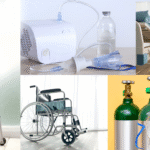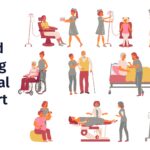
Watching someone you love slowly slip away from the person they once were is one of the most painful things a family can experience. Alzheimer’s disease affects memory, thinking, and behavior, and over time, it can make even everyday tasks difficult. That’s why learning to recognize Alzheimer’s early signs and knowing how to provide effective support through thoughtful Alzheimer’s care tips is more important than ever.
Millions of families around the world are silently carrying this burden, often unsure of how to navigate the changes. But with awareness, preparation, and a lot of compassion, you can make this journey more manageable for your loved one and yourself.
Recognizing Alzheimer’s Early Signs: Don’t Ignore the Subtle Changes
The first signs of Alzheimer’s are often brushed off as simple forgetfulness or signs of getting older. But Alzheimer’s is not just about forgetting things; it’s about the gradual decline of brain function.
Here are some early signs of Alzheimer’s to watch for:
-
Short-term memory loss
They may forget things you just talked about, or keep repeating questions.
-
Having trouble completing familiar chores
They find difficulties in basic works like paying bills, following a recipe, or brewing a cup of coffee.
-
Trouble with language
They may pause mid-sentence, forget words, or substitute unusual terms.
-
Changes in mood and behavior
Withdrawal from social activities, becoming irritable or confused easily.
-
Disorientation
Getting lost in familiar surroundings or not knowing the time or date.
If you’re noticing these changes, don’t wait for them to get worse. Getting a diagnosis early can help with better treatment options and planning for the future. You can also provide home care support to your loved ones with dementia.
Alzheimer’s Care Tips: Creating a Supportive Environment at Home
Taking care of someone with Alzheimer’s is not just about helping them bathe, eat, or take medicine; it’s about protecting their dignity and reducing their fear. Alzheimer’s patients often know something is wrong, even if they can’t explain it. That’s why the home needs to be a place of comfort, not confusion.
Here are few helpful Alzheimer’s care tips for caregivers and family members:
-
Maintain consistent routines
Familiar work reduce anxiety and help the person feel more in control.
-
Simplify the environment
Reduce noise, remove clutter, and keep furniture in the same place to avoid confusion.
-
Label important items
Use simple signs or photos on drawers, doors, and cabinets.
-
Encourage non-dependability
Promote them to do what they can safely. It boosts confidence.
-
Redirect, don’t argue
If they say something incorrect or unusual, gently guide the conversation instead of correcting them.
-
Practice patience
You may need to repeat yourself often. Speak calmly and clearly.
Caregiving is tough. Don’t try to do everything alone. Seek help from trained nurses, support groups, or respite services when you need to rest.
How can we Emotionally Support our Loved Ones with Alzheimer’s
People with Alzheimer’s might forget your name, but not your love. They may lose words, but they still feel emotions. Emotional support is just as important as physical care, and small moments of connection can be deeply meaningful.
Here’s how you can emotionally support them:
-
Use gentle touch
Holding hands, a hug, or sitting beside them provides reassurance.
-
Look through photo albums
Old memories often remain longer than new ones. Talking about the past can bring joy and calm.
-
Listen with your heart
Even if the words don’t make sense, the feelings behind them are real.
-
Stay present
Sometimes, just sitting together in silence offers more comfort than words.
Encourage family and friends to visit and engage, even if the person doesn’t recognize them. Familiar faces and voices still bring comfort.
Final Thoughts: You’re Not Alone
Living with Alzheimer’s is hard. Caring for someone with Alzheimer’s feels even harder. But you are not alone, and neither is your loved one.
By understanding Alzheimer’s early signs and applying practical Alzheimer’s care tips, you can give your loved one a life filled with comfort, safety, and dignity. You do not need to do it all together; start small. Learn, Adapt, lean on your community and professional caregivers when needed. Explore options for home care and experienced caregivers.
Alzheimer’s takes away memories, but it doesn’t erase love. That love shown in everyday moments of kindness, patience, and presence is what truly matters.

















